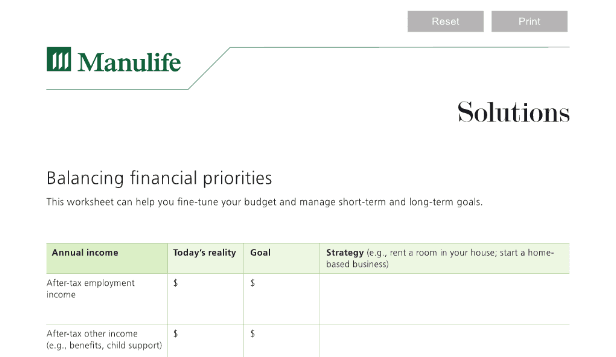4 WAYS TO ALIGN YOUR INVESTMENTS WITH YOUR VALUES
- By Tim Ramsay
- •
- 30 Oct, 2017
- •

Investments may be one of the most focused-on parts of your financial plan, with much of that attention on monetary reward. But your investments can reach well beyond the bottom line – and even your own lifetime – if your financial plan is aligned with your personal values.
Naturally, it’s important to ensure that your investments fit within your financial plan and life goals by thinking about time frame, how much risk you can tolerate and keeping cash on hand for emergency situations. But beyond that, matching your personal values to investment choices can have a big impact on your life and that of future generations, says Sucheta Rajagopal, a CERTIFIED FINANCIAL PLANNER® professional and portfolio manager with Mackie Research Capital Corporation.
Regardless of your financial and life goals—you may want to travel, own a home or leave an inheritance for your children or grandchildren—incorporating your own values takes things to the next, more meaningful level. “When you add values to the mix, the legacy goes beyond you and your family to the entire planet and what will be left behind for future generations,” Sucheta says. “It’s a big picture view of what can be done now, socially and environmentally, to make a lasting difference in the world. And ultimately it’s something that will make you feel good.”
Sucheta offers these four strategies to help align your personal values to investment choices. Discuss them with your financial planner to determine which options might be right for you.
- Think about what matters to you: Clean water, literacy, underserved populations, air quality, child refugees? Look at your lifestyle, personal goals, commonalities and affinities and match them to areas of social and environmental need.
- Understand the sectors and companies you’re currently invested in: Are they good corporate citizens? Do they have good governance and sustainable business practices? Are they working hard to reduce their carbon footprint or support underserved populations?
- Don’t throw the baby out with the bathwater: When considering specific industry sectors, in some cases you may want to delve a little deeper to look for best-of-sector companies rather than dismissing an entire group of investments.
- Don’t be misled by reports of underperformance: You needn’t sacrifice performance when you invest responsibly. In fact, research shows that socially responsible investment results are similar to or slightly better than their counterparts.
“Investing responsibly—like financial planning—is about taking a holistic approach,” says Sucheta. “People feel better and have a greater level of comfort when everything they do in life is in sync.”
A CFP® professional can help you make investment choices that not only enhance your financial well-being but match and support your personal values.
To find a CERTIFIED FINANCIAL PLANNER professional in your area, use our Find Your Planner tool.
For more on how financial planning can align with and help you achieve your goals, read 6 ways to balance your financial priorities, Live your bucket list: 8 ways to turn goals into reality and To realize your dreams faster, act now.










